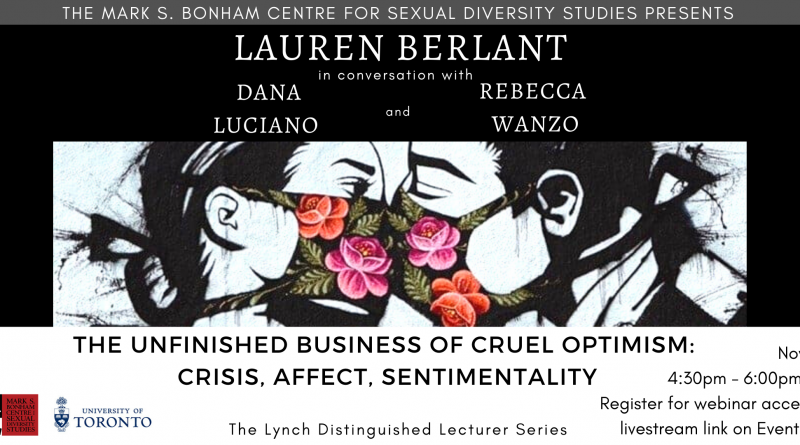


her articulations of the historical present and lateral agency were especially compelling. but, oh, apparently that's how she wanted it to feel. Cruel optimism is the provocative concept Lauren Berlant has given to a phenomenon endemic to the present political and affective moment: the holding up of hope as a means of stifling dissent, forestalling change, and ultimately rendering any array of. Review 2: this was an epic read, each chapter was exhausting in its own right. Cruel Optimism for the Neurologically Queer.

Nevertheless, this is a book that is worth sitting with and mulling over, even in its most painful moments. I still can't get this image out of my head. Berlant intimated that the American Dream is itself a form of cruel optimism, a paradoxical condition where something you think you desire proves to be a stumble and an obstacle to one’s. You become like a small animal that, when picked up, never stops moving its legs" (127). It locates you at the knot that joins the personal and the impersonal, specifying you at the moment you have the least control over your own destiny and meaning. As an example, trauma, in Berlant's styling, is described as something that "can never be let go of: it holds you. Gender, Place and Culture 551 Cruel optimism, by Lauren Berlant, Durham, NC, and London, Duke University Press, 2011, 352 pp., £63.65, 89.95 (hardback), ISBN 978-0-8223-5097-2 / £16.99, 24. more olitics" that she analyzes in the final chapter seem, as she admits, "minor," but they offer a possible avenue for "changing the white noise of politics into something alive right now can magnetize people to induce images of the good life amidst the exhausting pragmatics of the ordinary's 'new normal'" (261).I recommend reading Cruel Optimism in small doses, both to be able to fully immerse yourself in Berlant's unique prose and to allow yourself a break from her exceptional skill at making you feel exactly what the characters in the films or books she is analyzing are feeling. What she isn't as good at is saving her readers from a visceral sense of the precarious present, but that is part of the point. Berlant traces this "attrition of a fantasy, a collectively invested form of life, the good life" through an diverse assortment of novels and films, masterfully weaving together her analysis of these art forms with an assessment of the present moment (11). Her style is visceral and unflinching, "manifest" in her readers a sense of the "unbinding of subjects from their economic and intimate optimism" that is characteristic of the "situation of contemporary life" (7, 9). Review 1: To say that Cruel Optimism left me feeling bruised and exhausted is not necessarily bad indeed, I think that was partially Berlant's intent.


 0 kommentar(er)
0 kommentar(er)
